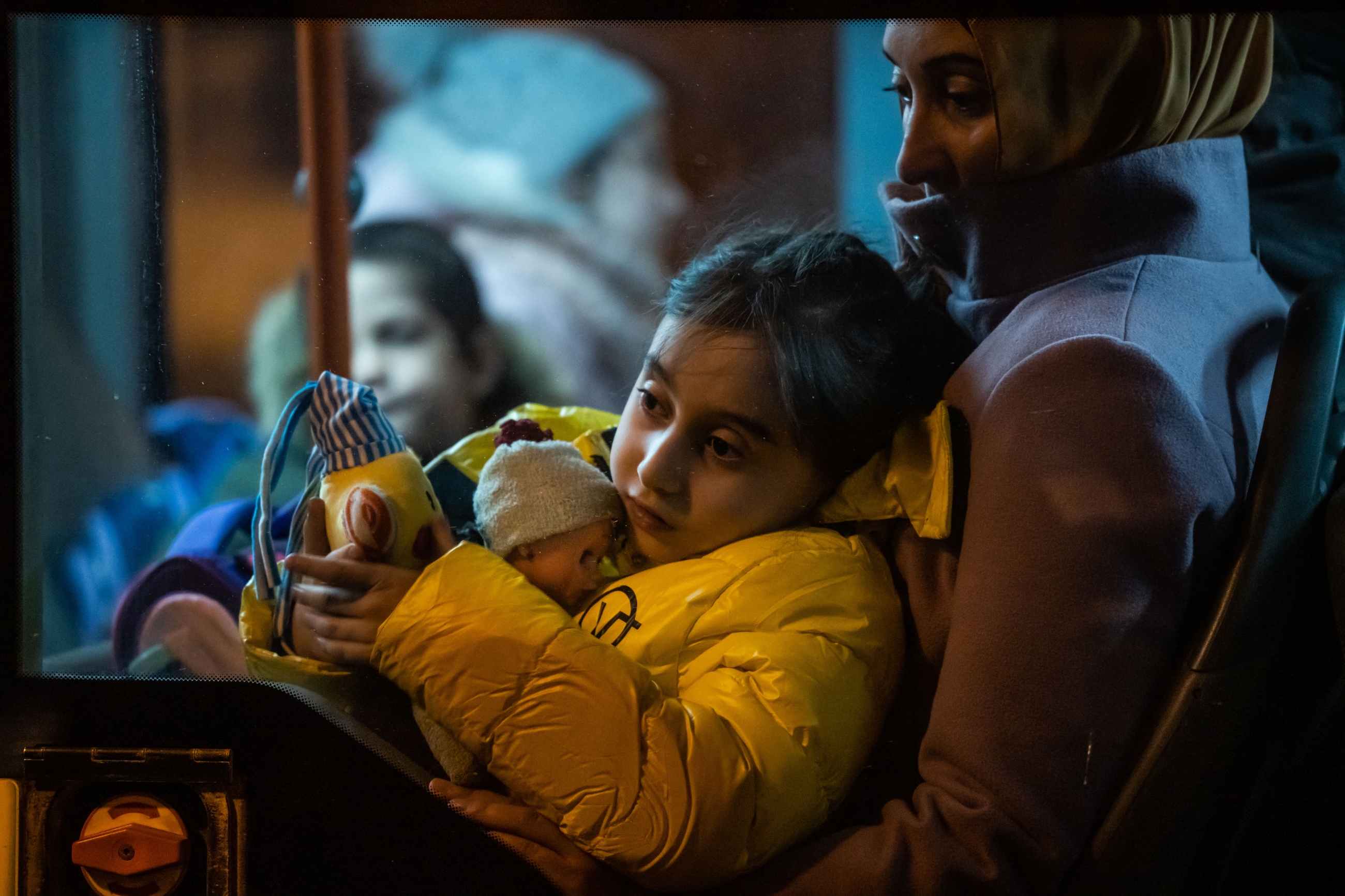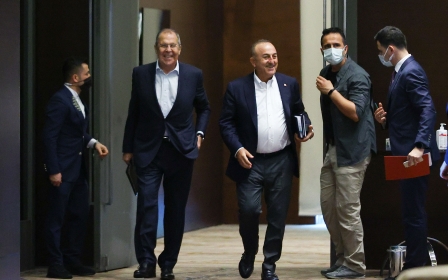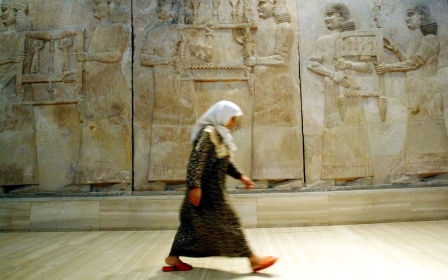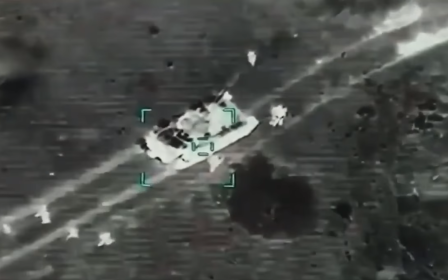Russia-Ukraine war: These European politicians welcome Ukrainian refugees - but not Muslim ones

As Russia’s invasion of Ukraine presses on and devastates innumerable lives in the process, over 1.7 million refugees have now fled to neighbouring countries.
While most Ukrainian men aged between 18 and 60 have stayed behind to defend the country, women and children have headed to congested border crossings to seek asylum abroad.
The UN’s high commissioner for refugees called the situation the fastest-growing refugee crisis in Europe since the Second World War.
Several European countries have welcomed those fleeing, including over one million in Poland, 180,00 in Hungary, 128,000 in Slovakia, 83,000 in Moldova, and 79,000 in Romania.
Right-wing and populist politicians in Europe have used this opportunity to draw a distinction between Ukrainian refugees and those from elsewhere - namely the Middle East and Muslim countries.
New MEE newsletter: Jerusalem Dispatch
Sign up to get the latest insights and analysis on Israel-Palestine, alongside Turkey Unpacked and other MEE newsletters
'These people are Europeans'
Spanish congressman and leader of the far right Vox party Santiago Abascal said that his country should welcome Ukrainian refugees, but not Muslims.
“Anyone can tell the difference between them [Ukranian refugees] and the invasion of young military-aged men of Muslim origin who have launched themselves against European borders in an attempt to destabilise and colonise it,” he told parliament last week.
Some 6,000 refugees are due to arrive in Spain, the country's minister of inclusion, social security and migration confirmed.
Meanwhile, in Bulgaria, President Rumen Radev fed into racist stereotypes about refugees from outside of Europe being linked to terrorism and criminality.
“These are not the refugees we are used to… these people are Europeans,” he told journalists, referring to Ukrainians.
“These people are intelligent, they are educated people... This is not the refugee wave we have been used to, people we were not sure about their identity, people with unclear pasts, who could have been even terrorists."
“In other words,” he added, "there is not a single European country now that is afraid of the current wave of refugees.”
Syrian journalist Okba Mohammad said the statement "mixes racism and Islamophobia,” as quoted in the Associated Press.
'Not a remote part of Africa'
In Greece, ruling party MP Dimitris Kairidis said during a live TV broadcast that “to sit and be slaughtered in the heart of Europe… and if you want to say it cynically, here we are not talking about a massacre in a remote part of Africa with non-religious people, but - to put it quite cynically, I know it sounds politically unorthodox, but unfortunately that also counts - Christians, whites, Europeans, who are from us, come from us".
Elsewhere, Danish Conservative politician Marcus Knuth tweeted a picture of a document showing the number of third-country nationals (TCNs) stranded in Ukraine, with the figures for Iraq, Syria, Iran, and Afghanistan circled.
“We will, of course, help all Ukrainians. But we say no to inviting 2,300 Afghans and Syrians, etc. with asylum in Ukraine as well as potentially up to +10,000 more from the Middle East,” he said.
Denmark has caused a stir after Ukrainian refugees were excluded from its controversial jewellery law that was used against Syrian refugees, among others, and through which valuables were seized from those fleeing conflict.
The tone and rhetoric around the war in Ukraine have been widely criticised, with accusations of discrimination and double standards. Several media outlets were blasted for airing racist tropes, often using comparisons between 'civilised' Ukrainians and those fleeing wars in the Middle East.
On Saturday, Palestinian supermodel Bella Hadid shared an Instagram post demanding the same level of backlash against Russia’s invasion of Ukraine when it comes to Muslims suffering around the world - including in Palestine and China.
Last week, a Turkish footballer refused to wear an anti-war t-shirt condemning Russia's invasion, citing a lack of solidarity with victims of war in the Middle East.
This article is available in French on Middle East Eye French edition.
Middle East Eye delivers independent and unrivalled coverage and analysis of the Middle East, North Africa and beyond. To learn more about republishing this content and the associated fees, please fill out this form. More about MEE can be found here.




